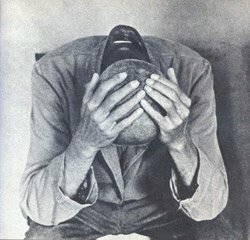Definition of Medical Wars
Miscellanea / / July 04, 2021
By Guillem Alsina González, in Mar. 2018
 Marathon or the passage of Thermopylae are names that resonate with legend but that, far from this, are very real and have their history: that of the Medical Wars.
Marathon or the passage of Thermopylae are names that resonate with legend but that, far from this, are very real and have their history: that of the Medical Wars.
The calls Medical Wars are a series of confrontations between the Persian Empire of the Achaemenids on the one hand, and the Greek city-states of Greece and the coast of Anatolia on the other, which occurred between 490 and 478 BC. C.
The first question that, quickly and seeing the name of these conflicts, could come to mind is the reason for the name. Wouldn't it be more logical to speak of "Persian Wars"?
The Persian Empire of the Achaemenids (later to be conquered and dissolved by Alexander the Great) was an entity politics composed of many different peoples, one of which was that of Media, the Medes.
Media was a neighboring region of Persia that had become larger, richer, and more important than its neighbor, but had ultimately been conquered by warlike Persians.
Perhaps in a derogatory way, the Greeks had adopted this name for the great Persian empire, perhaps as indicating to them their enemies who knew that there were other peoples that they had subjugated, and that they considered them more important than the Persians themselves.
Another possibility is that, as in the Persian Empire, the nobility and officials of the conquered kingdoms could be incorporated into the command structure of the Empire, the Greeks diplomatically related to the Medes, reaching the wrong conclusion that this was their empire, leaving the name for when they realized their mistake.
The relationship between the Greek polis (city-states) and the Persian Achaemenid Empire begins with the latter's conquest of the kingdom of Lydia in 546 BC. C.
This kingdom included the Greek city-states of Ionia, on the present west coast of Turkey, which enjoyed wide autonomy.
Obviously, the Persian conquest was going to change this state of affairs, and although as I have said before, the Persian spirit was to respect, with certain limits, the uses and traditions From the subjugated peoples, quarrels over commercial and cultural issues did not take long to arise either.
In 499, these Greek cities within the Persian Empire rebelled, requesting aid from their metropolises on the Hellenic peninsula.
Only Athens and Eretria sent aid, while the other major cops stayed on the sidelines.
Although the Greek campaign began with some successes, such as the recovery of Byzantium, the insurgent army and the warriors coming from across the sea ended up being crushed by Persia, and the revolt quelled with the violence usual of the time.
The First Medical War was the result of the stifled Ionian uprising, since the Persian king (Darius I) he wanted to exorcise the danger posed by another uprising encouraged by the Greek polis of the Hellas.
The Greeks, and especially the Athenians, saw the danger coming and therefore did not sit idly, planning and preparing the conflict that was to come.
The Persians planned the attack by sea, with a powerful fleet, and by land, taking advantage of the platform on European soil that provided them Thrace, and landing troops at Marathon following the advice of Hippias, an ancient Athenian tyrant who hoped, with the Persian victory, to regain his Market Stall.
The Athenian troops, together with the La Plata ones, were stationed surrounding the Marathon beach, preventing the Persian troops from leaving.
After having sent a messenger to Sparta to request help and was denied by the Spartans for being in the middle of religious celebrations that prevented them from fighting, the The battle fought on the beach at Marathon gave the Athenians victory, going down in history as a great victory for troops far outnumbered (an estimated 1 to 20).
On the return of the Athenian troops from Marathon to Athens to protect the city from him, there was the episode of the messenger Philipides, which gave rise to the athletic race known as Marathon.
The First Medical War ended here, with a Persian defeat and an episode that would leave its mark on history, after Darius I called off the attack on Athens as the Athenians had entrenched themselves too well.
The Second Medical War occurred a decade after the first, in 480 BC. C.
It was Xerxes, son of Darius I, who would seek to avenge the defeat of his father and conquer Greece, after ending some internal revolts of the Empire, common during any change in the throne.
Xerxes gave the Greek polis the opportunity to surrender and integrate into the Empire, but Athens and Sparta vehemently refused. The war, and a new episode that would write a brilliant page of history, were taking shape.
The Persian army set out by crossing the Hellespont by means of a bridge of barges.
The Spartans took advantage of the fact that the Persian army followed the coastline, a narrow path that did not allow Xerxes' troops will be deployed in all their amplitude, to lay a trap for them, betting on the strategic passage of the Thermopylae.
The movement it was destined to stop, during the maximum possible time, the Persian army to prepare the defense of Hellas.
At Thermopylae, 300 Spartan hoplites, with the help of contingents from other polis, would halt the Persian advance for a week.
The Greeks rebuilt an old wall pre-existing in the area to form a "plug" in a very narrow passage, which gave them superiority over the Persian troops thanks to their better training and military technology advanced.
The pass could only be overcome by the Persians thanks to the betrayal of Ephialtes, who discovered for the Persians a pass through which to send troops to surround the Greeks.
The legend of the 300 Spartans has been exaggerated over time, and these were accompanied by allies of various Greek nations, some of the who left before the final Persian victory, but remaining about 700 Thespians and 400 Thebans plus the helots servants of the Spartans.
This does not remove an iota of heroism from the feat achieved by those Greeks.
If Sparta was in charge of defense on land, Athens did the same at sea. Seeing the impossibility of defending their city, the Athenians used their immense fleet first to evacuate it. Upon reaching Athens, the Persians set it on fire.
Themistocles, the Athenian commander, drew the Persian fleet into battle in the Gulf of Salamis, intelligently using the large number of Persian ships against the Empire: he rode them and shook the circle, causing them to crash against each other. Many Persian ships were shipwrecked after colliding, without even going into battle.
The defeat at Salamis forced the Persian army to retreat, as they could not afford to remain in Greece without support by sea. However, the war was not over.
The following year, and although in smaller numbers, the Persian troops returned, forcing the Greeks to evacuate Athens again, and burning it again.
However, and under the threat of a Spartan attack, the Persians fell back towards the plateau of Plataea, where it would be again defeated by land by the Greeks.
There would still be a Third Medical War, but no longer the heroic events of the first two and their significance.
On this occasion, Themistocles changed sides, but the Greeks alerted to the new invasion plans, this time they decided to take the initiative (probably encouraged by previous Persian defeats), and to attack in present-day Turkey, defeating the Persian forces at the Battle of the Eurymedon River, in 467 a. C.
The outcome of the Medical Wars is so important that it is said that, had they been favorable to Persia, our world today would look different.
Really, this is something that gives think: Rome is reflected in Greece and, if it had succumbed, would Rome have risen? And, without what was Rome, what would Europe and even America be like?
Photo: Fotolia - grigvovan
Topics in Medical Wars

